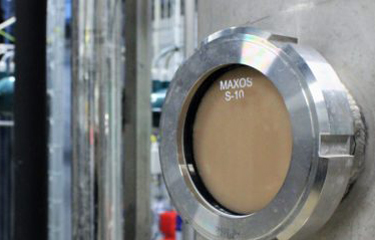Unibio developing protein for aquafeed from methane
Published on by Water Network Research, Official research team of The Water Network in Business
 Odense, Denmark-based industrial biotech and alternative protein company Unibio International is continuing to attract investment funding to facilitate further development of its protein-from-methane production technology and the rollout of projects worldwide.
Odense, Denmark-based industrial biotech and alternative protein company Unibio International is continuing to attract investment funding to facilitate further development of its protein-from-methane production technology and the rollout of projects worldwide.
Its trademarked product, Uniprotein, has performed well in trials as a high-protein feed ingredient, and has gained approval from the European Union for inclusion in feed for all animal and fish species.
Unibio Group CEO Henrik Busch-Larsen told SeafoodSource that Unibio, in collaboration with the Technical University of Denmark and others, has developed a range of innovative technologies under the U-Loop brand, which is available for use under licence.
These technologies allow the cost-effective, large-scale conversion of methane from natural gas or biogas, into high-quality protein that has a long shelf-life.
Unibio’s latest partnership is with the Mitsubishi Corporation, Japan’s largest trading company, and owner of Cermaq, one of the world’s largest salmon farming companies. The giant organization recognizes the potential to develop the single cell protein to its advantage across the entire methane-to-food value chain.
“We are very pleased to welcome Mitsubishi as a shareholder and partner. Having a world-renowned collaborator with an excellent track record, brings a lot of momentum to Unibio,” Busch-Larsen said.
One of Unibio’s selling points is that unlike many other alternative protein products, its technology does not rely on farming and fishing as a base and uses little water.
“Uniprotein helps to address one of the key challenges of today’s world – how to provide a growing population with high-quality food, without further exploiting depleted fish stocks or converting ever more land to intensive agriculture. At the same time, the process provides owners of gas assets with a commercially attractive way to valorize their gas, while addressing significant and growing markets with a low environmental footprint process and product,” Busch-Larsen said.
Production of Uniprotein takes place in a giant vertical U-Loop, which was developed by Bush-Larsen’s father. The patented closed fermentation process makes use of methane-eating microbes known as methanotrophs, which are found naturally in a water environment.
In a complex process, air, methane, minerals, oxygen, and catalysts are fed into the fermentor, then continuously circulated through the U-Loop, where the temperature is kept at 45 degrees Celsius. Natural bacteria eat the methane, and using it as their only source of carbon and energy, they propagate quickly. The resulting protein broth is directed to a drying tower, where excess gas is removed before the residue is sprayed and dried, using hot air from the base of the fermentor. The end product is a protein-rich granule, which can be harvested in large quantities ready for incorporation in feed products.
A major advantage of the production method is that water and CO2 are the only waste products, making the environmental footprint smaller than for comparable conventional protein products.
Media
Taxonomy
- Sea Food Processing